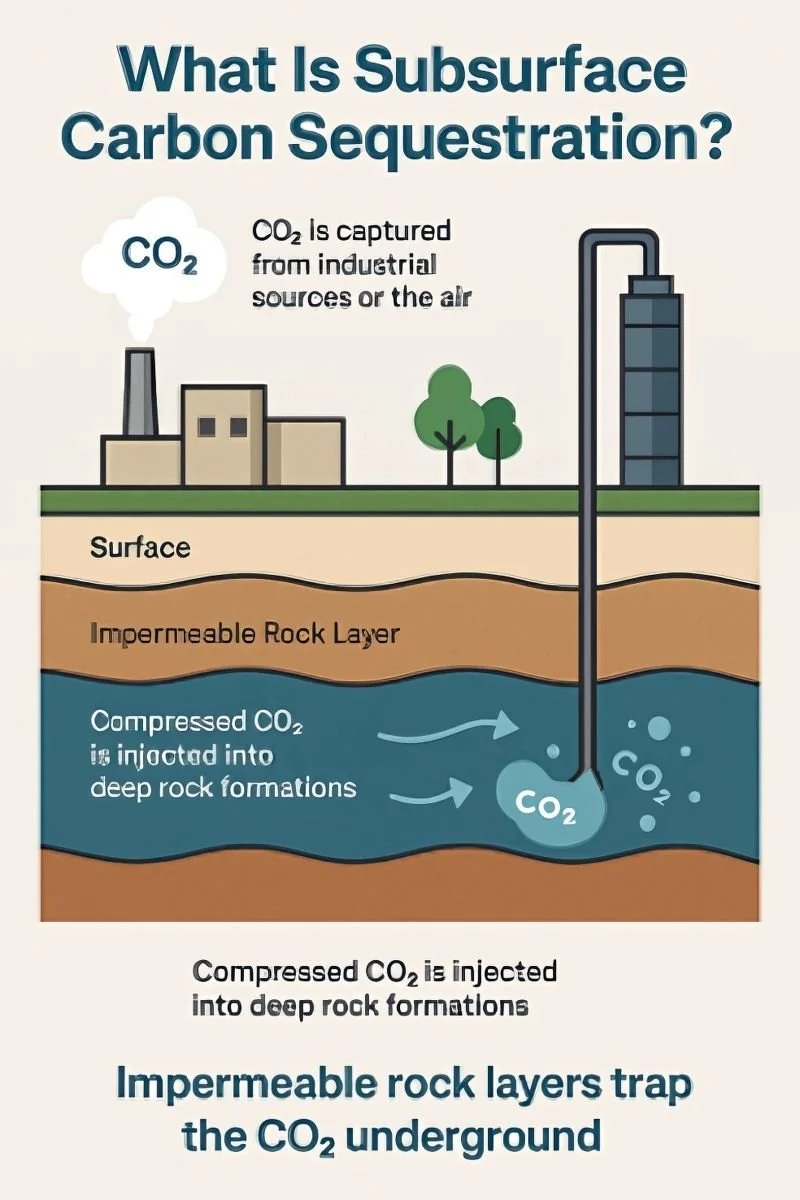What Is Geologic Carbon Sequestration?
Geologic (Subsurface) carbon sequestration is a powerful climate solution that allows us to dispose of carbon dioxide (CO₂) deep underground, keeping it out of the atmosphere for thousands of years.
CO₂ is captured from industrial sources or the air
It’s compressed and injected into deep rock formations like saline aquifers or depleted oil fields
These formations are sealed by impermeable rock layers that trap the CO₂
Why It Matters:
This method can dispose of billions of tons of CO₂ and is essential for reaching net-zero goals.
At Lonquist,
We Support Our Clients in the Full Life Cycle of the Sequestration Project.
From greenfield development, permitting support, project execution (as an EPC), monitoring, and ultimately, project closure.

